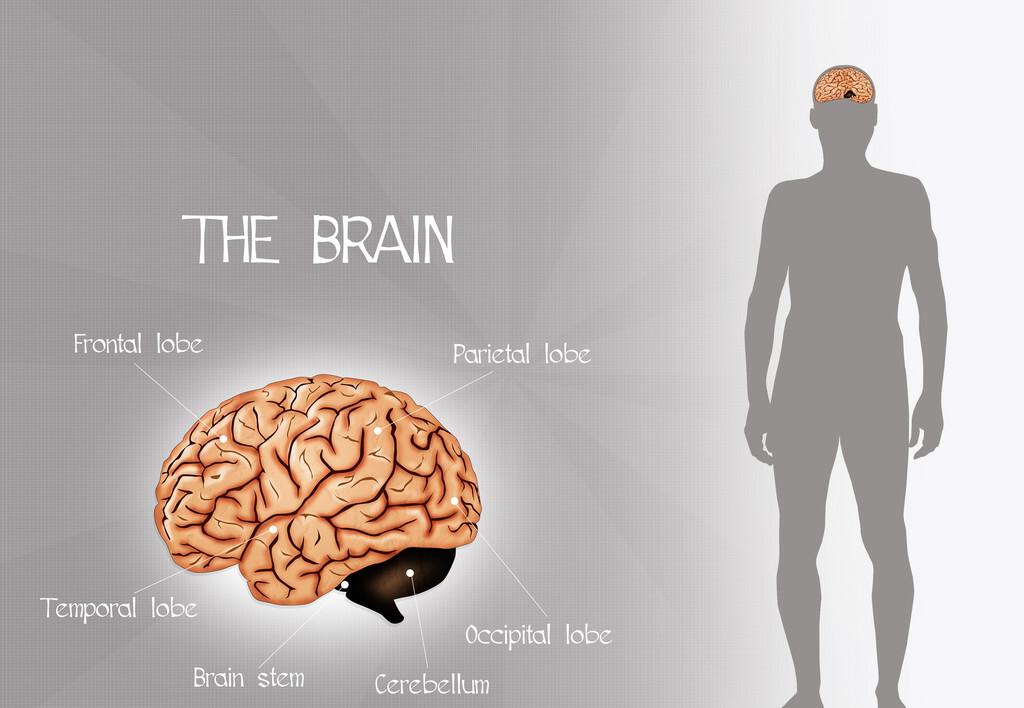Pay attention to the neighbor Wei Gongzi and take you to see the world!
Open the "passcode lock" of memory
What is memory? Simply put, it is the reflection of things experienced in the past in the human brain. To explain memory from the perspective of modern information theory is to transmit perceptual information to the brain, give the brain a certain stimulus, and leave chemical (or other) imprints in the brain, which can be retained for a certain period of time; during this time, as long as there is a memory, the input information can be reproduced. In a nutshell, "remembering" is the storage of information, and "recalling" is the reproduction of information.

Memory occupies an important position in human psychological activities, without memory, human beings accumulate knowledge and experience, carry out advanced cognitive activities and develop personality will become a bubble.
Not only do humans have memories, but all animals with brain nerves, including cows, sheep, chickens, dogs, cats, swallows, bees... They also have a certain memory ability. Without the ability to remember, they will not come back after running away from home.
Human memory is more complex and advanced than that of animals, and human memory has certain differences. Ancient and modern, Chinese and foreign, there are people with extraordinary memory. For example, the Russian chess champion Kaspalov memorized nearly 10,000 chess scores; he never made a mistake with the addresses of more than 1,000 people and the phone numbers of more than 400 friends. Cai Wenji, a famous female writer during the Han Dynasty on the mainland, memorized more than 400 works of her father Cai Yong that were lost due to war, so that they can be passed down to this day.
So, why can people remember? What is the nature of memory? Despite the long exploration of these interesting questions, it is still like a password lock that has not been exposed, and has not yet been opened.
In the earliest days, the ancient Greek philosopher Plato explored memory. He believes that memory is like fire-roasted wax paper, and many scenes that appear on wax paper are signals of memory. Obviously, this is just a vain imaginary speculation without any factual basis.
With the advancement of science and technology, people now have a much deeper understanding of the memory of the brain.
One theory is that memories are stored in protein molecules (or polypeptides — protein fragments). This theory was first proposed by the Swedish neurochemist Hayden in 1958, and several experiments later seem to prove it. For example, the world-famous biochemist George Ongar analyzed and compared the chemicals of two rat brain cells and found that the protein and polypeptide content in the brain cells of rats trained in memory was higher than that of untrained rats. To this end, he further pointed out that memory is the result of the rapid formation of polypeptide molecules in brain cells; each order of polypeptide molecules is arranged and combined, which represents a memory.
This view is not recognized because some scientists have re-done the Ongar experiment and found that 2/3 of the rats are not effective, so they have doubts about Hayden's theory of "protein molecular memory".
There is also the idea that memory is closely related to acetylcholine, a chemical that transmits information. If the mother is given a scopolamine drug, it can break down the acetylcholine of the human body, and as a result, the mother loses the memory of the operation. American doctors have also done clinical trials to let the elderly with memory decline take certain acetylcholine drugs, and the results of the elderly's memory have improved, which proves that acetylcholine does have a certain relationship with memory. But exactly why it promotes memory, and whether it is a substance that stores memory information, is unclear.
In addition, scientists in the United States have also conducted experimental studies on adrenocorticotropic hormone and melanin hormone in the human brain, and found that they can not only promote human memory, but also treat ADHD and enhance attention. Someone also gave them a cute name - "genius medicine". There is no reliable explanation for how these two "uninvited guests" help people improve their attention and memory.
In short, people are still far from the "password lock" that opens the memory, especially in which parts of the human brain are the memory areas of different things, what substances are involved in the memory, how they work, what are the main differences between people with excellent memory and ordinary people, and why there are these differences... These questions have not yet been conclusive, and thus have become the focus of research by many brain experts and chemists. For example, Japan has listed brain science as one of the major scientific research topics in the 21st century, and is sparing no effort to strengthen research in this area.
Your likes and comments are my greatest encouragement!